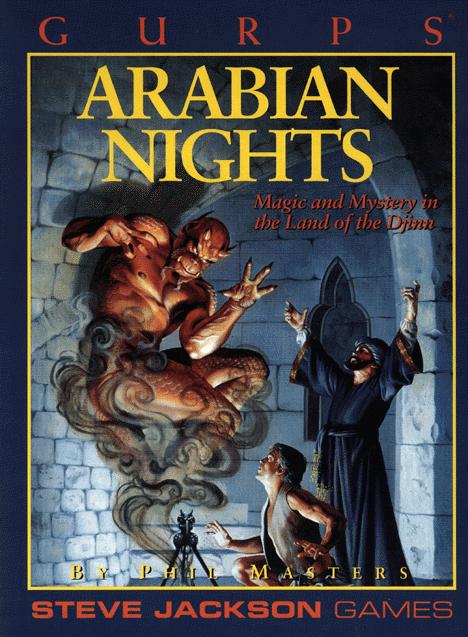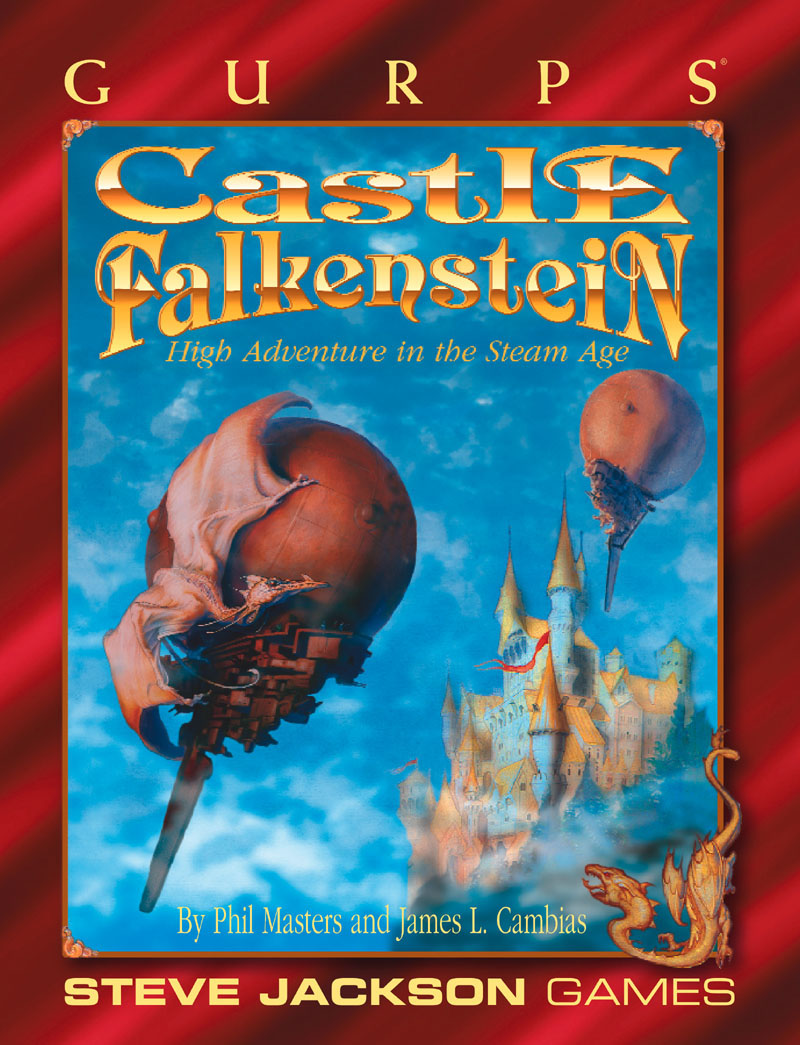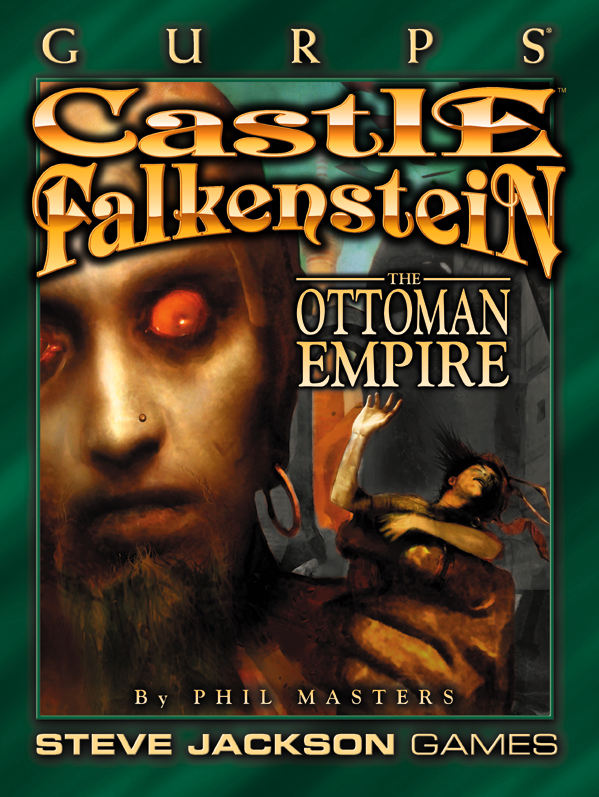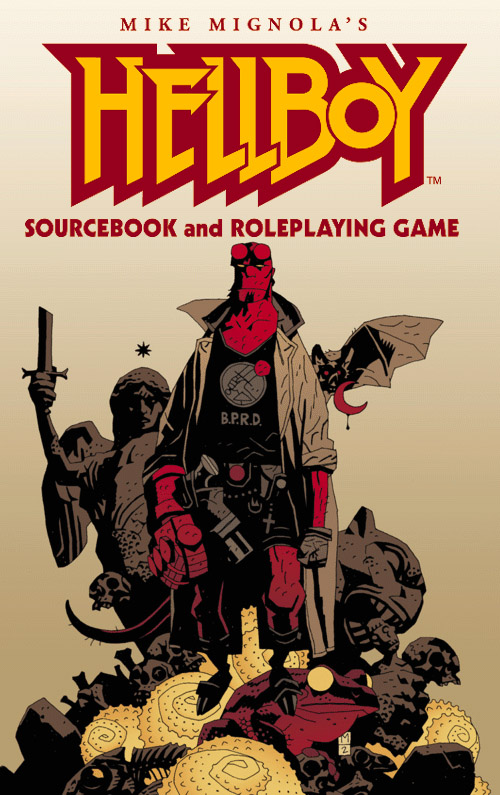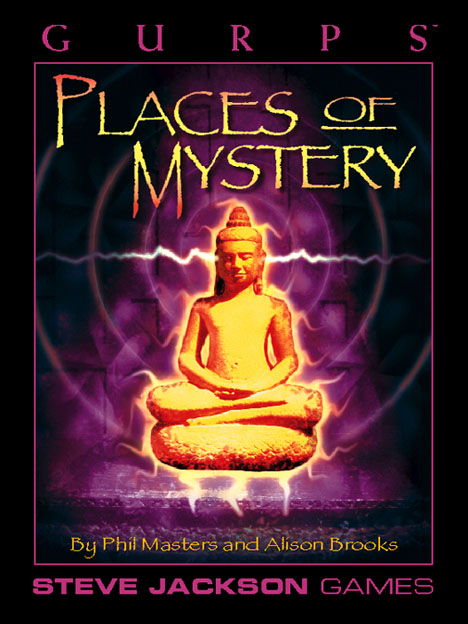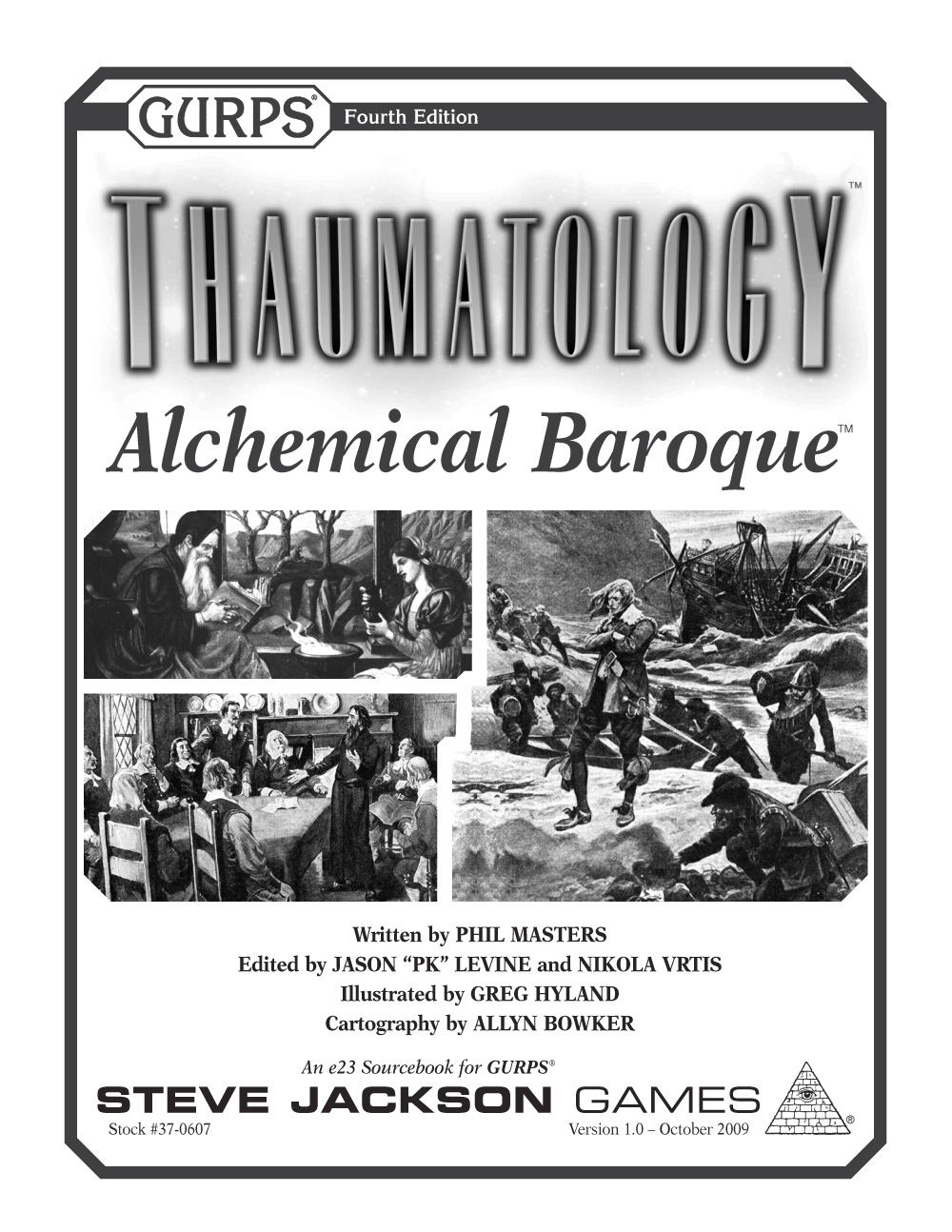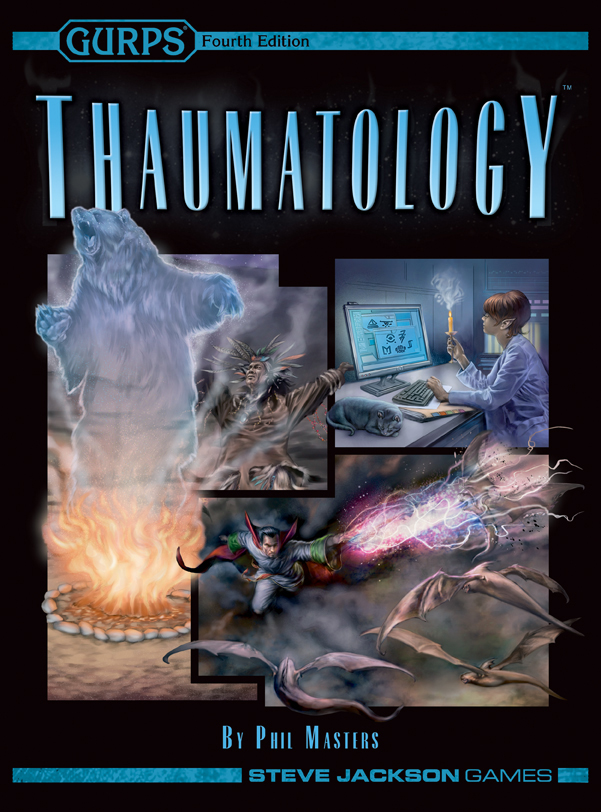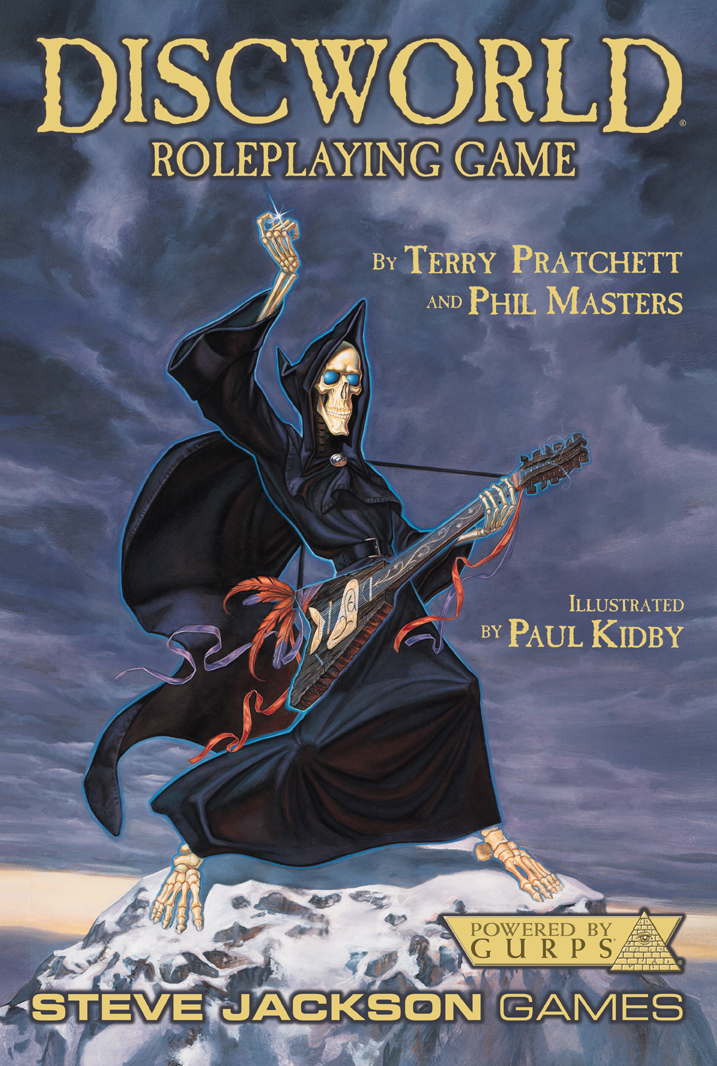An Interview With Phil Masters:
(12-16-2011)
Victorian Adventure Enthusiast recently got the chance to put some questions to one of our favorite RPG authors ever, Phil Masters.
Here's what he had to say...
Victorian Adventure Enthusiast: Let's start at the beginning, when did you start gaming?
Phil Masters: Ah, that was long ago, though not very far away...
I was at school in the mid-1970s, and one day over lunch, I heard somebody describing what the school wargames club did. It sounded cool, so I joined in.
That was tabletop historical wargaming, of course, but a couple of years later, we started hearing reports about this weird "Dungeons and Dragons" thing over in the States. I eventually got around to trying it out at a club while I was in a pre-university job in 1978.
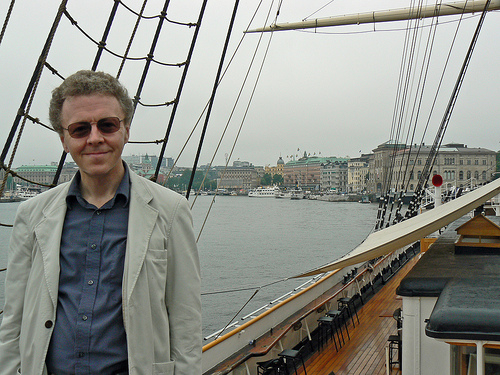
VAE: One of your bios states that you've been writing since 1980. Was this game related writing? What was the piece about?
PM: Well, I did a few small pieces for wargames society newsletters and university SF society magazines before that, so I had this idea that I could put a few words together, but 1980 was my first paid publication, and yes, it was game-related. It was for White Dwarf, back when Games Workshop were a games shop and importer, and WD was their RPG magazine. I submitted an article about using historical troop types in D&D games, and they ran with it.
It came from my background in historical wargaming, and it was skimpy and unimpressive by modern standards. But I've had at least one person say they have fond memories of it, and I guess that you could say that it anticipated the sort of more historically-based roleplaying material that emerged in the '80s, so maybe I should be proud of it after all.
VAE: What lead from being a game player to a game writer?
PM: Mostly just the delusion that I can write. I have enough vanity to enjoy seeing my name in print, and I liked the idea that my hobby could at least be self-financing. And I managed to convince a few publishers that I could indeed write, so I kind of fell into the business.
VAE: A number of your pieces have been for GURPS. How did you get connected to Steve Jackson Games?
PM: Around 1989-90, I fancied moving from magazine articles to book-length material. In fact, my first publication (a book called "Kingdom of Champions") was for Hero Games, but GURPS had appeared by then, and I managed to open lines of discussion (mostly by letter, partly at conventions) with Steve and his people, who'd seen some of my magazine and fanzine work and that first book. We found that we could work together, and they were looking for the sort of stuff that I wanted to write.
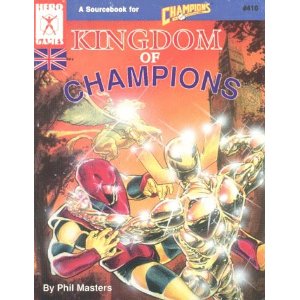
VAE: What was your first piece for Steve Jackson?
PM: GURPS Arabian Nights. It was a subject I felt qualified to tackle - gross overconfidence, really - and we all thought it was a natural for RPG treatment.
VAE: You're the co-author (with James L Cambias) of the GURPS adaptation of one of my favorite settings: Mike Pondsmith's Castle Falkenstein. How did you end up bringing this project to fruition?
PM: Actually, along with my work for Steve Jackson, I'd pitched a book for the Falkenstein line to (Castle Falkenstein publisher) R.Talsorian, and I was active on Falkenstein mailing lists and so forth. Then Steve Jackson negotiated the license for that project - it was a well-known and quite popular setting at the time - and they decided that James and I, who'd both worked on GURPS material and had known interests in Falkenstein, were the logical people to write the actual book.
VAE: Was it hard to translate the narrative driven mechanics of the original game to the more crunchy GURPS?
PM: It was more a matter of taking one step back, looking at the setting (rather than the mechanics), and writing it as a GURPS book for this particular existing world. Trying to convert the Falkenstein game mechanics over would have been a bit pointless. The Falkenstein world (like any decent RPG setting) exists independently of the rules used to describe it, and GURPS can be used for the purpose fully well enough.
The one place where we did convert the Falkenstein mechanics, to a significant extent, was the magic system. The Falkenstein world has some distinctive, world-specific magic, and we wanted to preserve consistency and feel. So I spent some time tinkering with probabilities and detailed mechanisms there. It was an interesting technical exercise.
VAE: How does someone co-author a gaming book?
PM: I'm sure that there are lots of ways of doing so; in one or two, I have actually sat in the same room as a co-author, staring at a single screen and discussing which words to use. But you can't do too much of that. Not while remaining sane and friends with the other person. Anyway, most of my co-authors have been on other continents.
At the other end of the scale, I've worked on books were one person was writing the core and the rest of us were contributing flavour-heavy, rules-light sections - usually secondary setting material. That's relatively easy. But yeah, those are extremes.
My usual experience has involved a lot of e-mails, to start with; one of the authors suggests a rough outline, the other person suggests some refinements and changes, and after a bit of back and forth, you have the shape of the book. Then, once the publisher has approved that, you talk a bit more, and divide the project up, usually by chapters.
Then you both go away and write your own parts, occasionally e-mailing each other when you realise that there are specific interactions to worry about. Then, you compare chapters, critique each other's work, hammer out inconsistencies... And eventually you have a first draft.
Then, once it's been through playtesting and the publisher has sent you a list of required changes, you do something similar with the revision process.
If you're doing it this way, you need a good outline to start with, I guess, and you need two (or more) authors who are on the same general wavelength. But it's not quite as hard work as it sounds. I wouldn't like to have tried it before I had e-mail, though.
VAE: You wrote a follow up GURPS Castle Falkenstein about the setting's Middle East: GURPS Castle Falkenstein: The Ottoman Empire. Why was this book given the go-ahead?
PM: Actually, that was the first Falkenstein book I wrote, though without the GURPS bit. When the game first appeared, I talked to Mike Pondsmith about writing for it, and he commissioned me to write an Ottoman Empire book. Which I did, but by the time I was done, R.Talsorian had reduced their activities substantially, so although they'd paid me a bit for the work, the manuscript ended up sitting on my hard disc, unpublished.
So, when GURPS Castle Falkenstein appeared, I was able to point out to Steve Jackson Games that I had a follow-up book largely written. All they had to do was talk to Mike about transferring the rights - which he was kind enough to agree to - and get me to write some GURPS material for it.
VAE: GURPS Castle Falkenstein: The Ottoman Empire is notable in that it features stats for both GURPS and the classic Castle Falkenstein. What was the thought process behind that?
PM: Simply, that we could do it, and it meant that we could sell the book to both original Falkenstein fans and GURPS fans. It was a one-off situation, a little unusual - but the Falkenstein rules mechanics already existed, the GURPS conversions weren't too hard to add, the result was a book of around the preferred length for a GURPS supplement, and it allowed everyone to make an honest return on something that otherwise, wasn't going anywhere.
VAE: On the pulpier side of things you've co-written the Hellboy Sourcebook and Roleplaying Game, GURPS Atlantis, and GURPS Places of Mystery. Where does your interest in secret history come from?
PM: I'm a gamer, whose interests extend a bit beyond standard sword and sorcery. Secret histories are one of the first areas you tend to end up if you get into mythology and genre fiction in general.
Not that it's a specific obsession of mine, mind you. After all, I've written a lot of other stuff too. But I'm as big a sucker as most people for pulp-fantasy-action and documentaries about historical mysteries and so forth, and I know that it's a decent subject for games, so I'm happy to write about it.
VAE: How much of a fan of Hellboy were you before you were tapped to helm the Sourcebook and RPG?
PM: Dark secret time; I wasn't. I hadn't read any of it until Steve Jackson Games approached me to work on that book. But they guessed that I could handle it, and when a company have got a license like that, which doubtless costs them money and has time limits attached, they need someone they can trust to meet deadlines (well, usually, honest!) and write coherent prose, more than they need a hardcore fanboy.
VAE: Was Hellboy creator Mike Mignola deeply involved in the project?
PM: In my experience, fiction licenses for games don't involve a lot of hands-on, day-to-day intervention by the creator of the original material. (I'm sure that there are exceptions!) They should answer questions - and Mike did, very helpfully, on one or two subjects - and they have final approval rights, but if they're not gamers themselves, they probably don't have the inclination to meddle in the details of the process, even if they have the time.
If the source material is out there, the games writer's job is to convert that, not to pester the person who wrote it.
VAE: I remember back on the old Steve Jackson Games boards where the idea of the "Atlantis Project" came up, so I was very happy when GURPS Atlantis finally saw the light of day. What did you get out of working on this release?
PM: The smart-aleck response to that question is, of course, "Paid".
But actually, Atlantis was an interesting project. I got the job because I wrote the Atlantis chapter in GURPS Places of Mystery, but I then took things off in all sorts of interesting directions. After all, what is Atlantis? A thought experiment in a piece of Classical Greek philosophy? A resonant myth? The subject of a lot of pulpy fiction of frankly very variable quality?
It's all that, but for me, it was also an excuse to research and write about underwater adventuring - that's one of the big things about Atlantis, you know, it's supposed to be under water - and to come up with three different worked-out game uses of the concept. It was fun. It turned into quite a pretty book, too.

VAE: GURPS Places of Mystery has acted as one of my "go to guides" whenever I need a quick bit of weirdness or a setting for game. How much research did you have to do to complete this book?
PM: Quite a bit. (Fortunately, it was another joint project, with a friend of mine, the late Alison Brooks, so the work was shared.) I mean, we started knowing bits and pieces about most of the things we had to write about - sometimes a lot, sometimes just a name, really - but then we went off and researched enough to make each entry useful. As well as all the weird secret history stuff, we spent quite a lot of time buried in big reference books about the history of
architecture, which was a subject which neither of us knew that much about to start with.
Though I can't pretend to have become an architectural historian - or an expert on secret histories, for that matter. Games writers are like journalists; we have to be able to skim sources and then fake like crazy.
VAE: One of my favorite games settings was created by you and first appeared in GURPS All-Star Jam 2004: Alchemical Baroque. I think that it's a fertile and imaginative setting, that mixes fairy-tale fantasy with early modern science... kind of a black-powder fantasy. How did this reality develop? What makes it "Baroque" and "Alchemical"?
PM: That idea goes back years with me. The fact is, I got into fantasy (a bit) before I got into D&D, and before D&D had set the tone for so much modern fantasy writing. So I've always been at least peripherally aware that there's more to fantasy than brawny barbarians and wizards in pointy hats. Amongst many other things, there's the whole fairy-tale tradition, which goes back thousands of years, but which was collected into a specific shape by people like Hans Christian Andersen and the Brothers Grimm in the early 19th century.
So I had an idea, back in the early '90s, about doing a fantasy setting that wasn't at all D&D-ish, just to be different. Not that this was original - several brilliant games writers beat me to it - so I had a look round and thought about what hadn't been done much. And I came up with the fairy-tale setting.
Then I looked at what those 19th century writers gave us. Their setting wasn't some mythic age of swordsmen and sorcerers, but it was a little bit archaic by the standards of their time - a tiny bit nostalgic, with lots of Central European forests and pocket kingdoms.
So I pushed my reference date back a hundred years, to the early 18th century.
That gives you black powder and early science, as you say, but not too much technology to worry about. And it let me throw in a few non-fantasy sources I liked - films set in the period and so forth.
But then the idea just sat in the back of my mind and on a whiteboard in my office, for years. I never quite managed to convince any publisher to buy it, and I had other stuff to do. Until Steve Jackson Games came up with the All-Star Jam project, and gave me a free hand for 10,000 words. So I dusted off this old idea.
I called it "Baroque" because the reference era is, broadly speaking, the Baroque period in European cultural history, and I liked the suggestion of decorative complexity. I added "Alchemical" because I wanted useful magic that wasn't lightning bolts and fireballs, and
alchemy offered some options there, as well as being just about current for the period. And "Alchemical Baroque" sounded like a nice tag-line and title.
VAE: Alchemical Baroque was reissued in 2009 as GURPS Thaumatology: Alchemical Baroque. How does the newer version differ from the original incarnation?
PM: Primarily, it updates all the rules parts to GURPS 4th edition. Amongst other things, that means using the 4th edition version of various magic rules, which were now included in GURPS Thaumatology.
VAE: Who chose the art that accompanies the current version? Was their a specific intent to move away from the light-hearted illustrations that were featured in the original edition?
PM: That was down to the Steve Jackson Games production staff, although it was fine by me.
All-Star Jam had this wonderful cartoony art by Greg Hyland throughout, in multiple chapters on very different topics, which was great there, but I guess might have looked a bit too cartoonish out of that context. So the production people went off and found some very nice out-of-copyright period artwork, giving the book a nicely antiquated look on a tight budget.
VAE: Why is Alchemical Baroque couched as part Thaumatology cycle as opposed to being presented as a Fantasy setting?
PM: Because you do need GURPS Thaumatology for the magic rules. That's unavoidable - it'd be two or three times as long if we cut-and-pasted them in - and it's only fair to people to make the connection clear up front.
Plus, frankly, it makes the book into a promotional device for GURPS Thaumatology (another of my works).
VAE: In more a steampunk vein you've written GURPS Infinite Worlds: Britannica-6. Despite its late 19th century setting Britannica-6 is *not* Victorian setting. What makes this different than other steampunk and Victorian settings out there?
PM: The origin of that was a typically brilliant one-paragraph note by Ken Hite in his GURPS Infinite Worlds, which I initially took as inspiration for a convention demo game, and then expanded into this publication. It's an alternate history in which Queen Victoria was never born, because a rather peculiar incident in early 19th century history turned out differently (and if you look, Victoria was only born as the result of some quite strange political stuff!), and a very different British Empire has got into internal squabbling involving some weird-tech super-weapons and gadgets.
So I took the absence of Victoria as the key. It's not a Victorian era! And the easy replacement for Victorian society is a continuation of Georgian/Regency society, which has the right flavour of dynastic squabbling, too. (I think that this is what Ken had in mind from the first, actually.)
Then, I decided that the technology, having had 70 years to run away with itself, could have got beyond steam. Dearly as I love steampunk, it's become a bit of a cliche; I wanted something a bit different. And Ken's paragraph had mentioned things like "the Electrical Terror".
Right. Electricity! Let's go for a post-Victorian feel here. After all, diesel power and electrical gadgets can give these crazy science- loving aristocrats and royals a bit more credibility to their mad science. Steam is a bit too cumbersome for a society with the dial
jammed on fast-forward, let's face it.
So it's diesel-electric rather than steam, and Regency rather than Victorian.

VAE: The fashions of Brittannica-6 are strikingly different than the buttoned up conservatism of the Victorian era. How do you sum them up for people?
PM: The tag line I sometimes use is "Georgette Heyer with glide bombs". A player in one of my demo games pointed to a bit of unconscious '70s/'80s cop show influence, too - fast cars and garish nylon clothing.
It's all a bit decadent, in a very Regency way. (Remember, the Victorian era was in many ways a reaction against the Regency. There's not been any reaction on Britannica-6.) Technology is running away, and while a lot of people seem to be having fun, if you want a dark undertone, there's a sense that the whole thing may run into a brick wall at some point
VAE: We've only scratched the surface of books you've worked on. Just for GURPS alone you've done Arabian Nights, Banestorm, Dragons, Who's Who 1 & 2 and TWO books for Discworld (The Discworld Roleplaying Game and GURPS Discworld Also). So what's your favorite project in the end?
PM: I love all my babies equally, honest... But the Discworld books allow me to share a cover credit with Terry Pratchett. That's a real honour. And it's a great setting, too, and enormous fun to play around with.
Conversely, there's the Transhuman Space line, which I didn't create but which I now line-edit. RPGs don't have many attempts at reasonably hard SF, and I'm proud to be involved in what I feel is the best.
Oh, and outside of the GURPS line - I wrote or co-wrote two books for White Wolf's old Mage: The Sorcerers' Crusade line. I still feel that The Artisan's Handbook and The Swashbuckler's Handbook came out rather well.
VAE: What do you have in the pipeline?
PM: I'm currently working on a new edition of the Discworld RPG. Beyond that, there's some Transhuman Space editing. And then, we'll see.
VAE: Any final words of advice for gamers?
PM: Don't be afraid to have your own personal tastes - the point of games is to have fun, after all - but don't get religious about them. They are (only) games, darn it; getting into fights about them is silly.
Actually, there's no one perfect game, or one perfect setting, so different things are often worth trying. But most of all, if you are doing something you like, not getting bored, and not messing up other people's fun, then enjoy yourselves.

For more info on Phil, check out his websites:
Phil Masters
http://www.philm.demon.co.uk
http://philmasters.blogspot.com *
James L Cambias:
http://www.jamescambias.com/
Dungeons & Dragons:
http://www.wizards.com/dnd/
GURPS:
http://www.sjgames.com/gurps/
HERO Games:
http://www.herogames.com/home.htm
Georgette Heyer:
http://www.georgette-heyer.com/
Kenneth Hite:
http://princeofcairo.livejournal.com/
Mike Mignola, creator of Hellboy:
http://www.artofmikemignola.com/
R. Talsorian Games:
http://www.talsorian.com//talsorian/NEWWEBSITE/default.htm
White Dwarf Magazine:
http://warhammer40k.wikia.com/wiki/White_Dwarf_Magazine
White Wolf, publisher of Mage: The Sorcerer's Crusade:
http://www.white-wolf.com/
